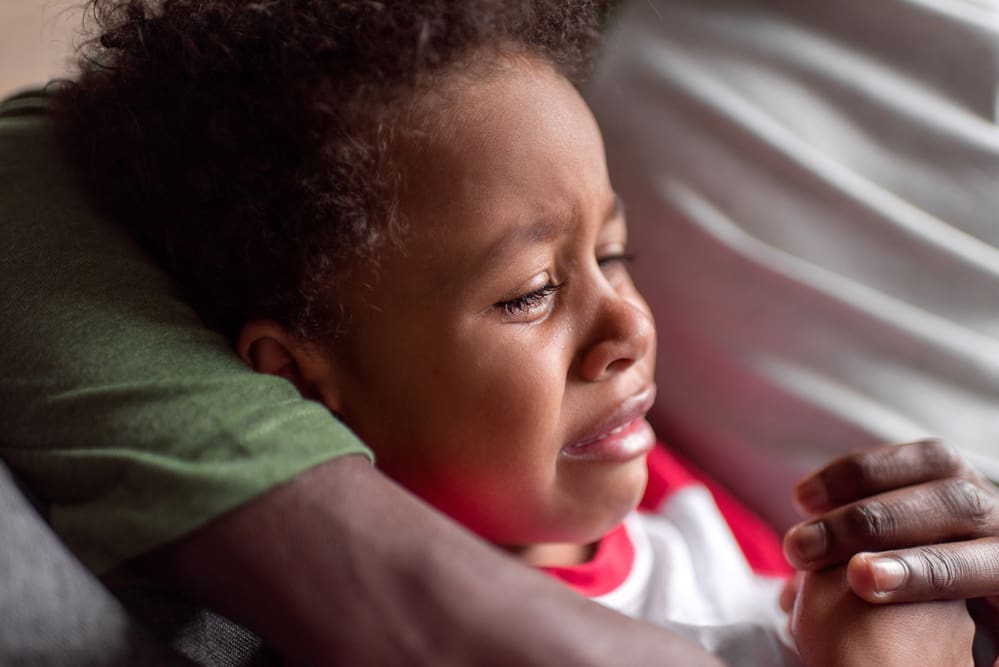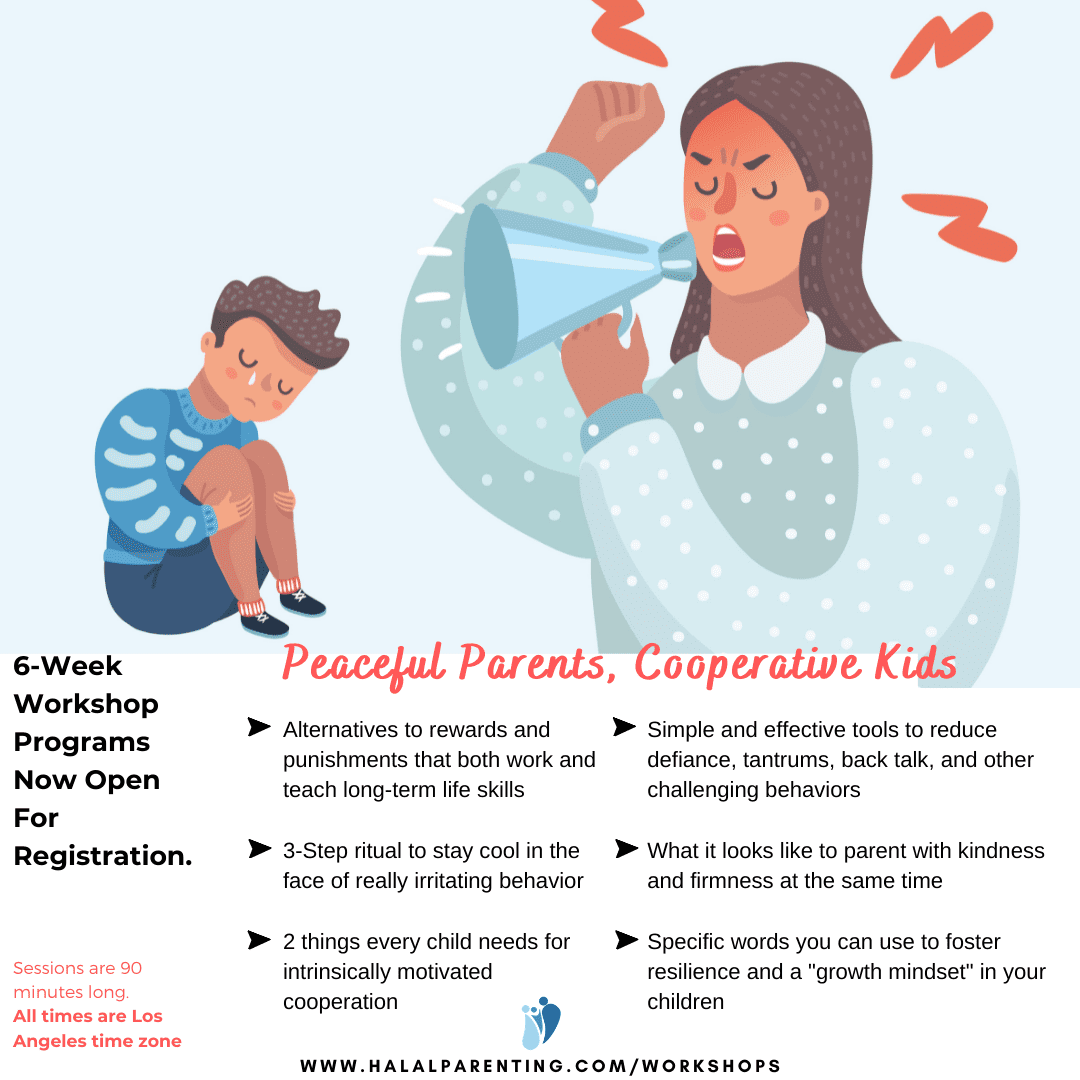Positive Parenting – The Ultimate Guide

The term, Positive Parenting, has been thrown around quite a bit over the last several years. It’s become a buzz-word in the world of parenting. But what exactly is it?
Positive Discipline is an approach that is based on mutual respect and cooperation. The biggest difference between this discipline method and the other most common methods (very strict or very permissive), is that it incorporates kindness and firmness at the same time.
This may seem like it’s too good to be true, but take a moment and think about it. When we use excessive control and are very strict with our children, we make it our responsibility as parents to constantly be in charge of our children’s behavior. We focus on rewards and punishments, and have to catch our children being good to reward them, or catch them being bad so that we can punish them.
What happens then when we’re not around? You guessed it, kids aren’t learning to be responsible, because now they’re free to do what they want when there’s no watchful eye monitoring them.
What about those parents who are permissive?
Taking the approach of “There are no rules – I am sure we will all love each other and be happy” can lead to kids manipulating their parents in order to get what they want. Children are pampered and protected from challenges and disappointments, setting them up to fail once they are grown and enter the real world. Permissive parenting can be humiliating to adults and children, and creates an unhealthy codependency instead of self-reliance and cooperation.
Positive discipline is a healthy balance that doesn’t include any blame, shame, or pain (physical or emotional) as motivators to good behavior, and its purpose is to raise children who are responsible and cooperative because they are able to use self-control and self-discipline.

Rasul’Allah’s (pbuh) approach to raising kids
Building on a foundation of love
The blessed Prophet’s (pbuh) primary focus when interacting with children was to build a bond of trust. He took time and interest in children’s games and conversations, and built relationships founded on love. It became easier then for him to talk to children about certain matters, and have their full attention and eagerness to comply – out of their love for Him.
Rasul’Allah (pbuh) understood that in order for children to listen, first they need to feel heard. With this loving foundation built on well-established trust, Rasul’Allah (pbuh) would be affectionate with children before asking them to do something.
For example, He would say:
“Oh Mu’adh, I love you, so don’t forget to recite after every prayer: ‘O Allah, help me in remembering You, in offering thanks to You and in worshipping You properly.”
The blessed Prophet (pbuh) showed us through this and many other examples that being loving and showing love, affection and emotion are the essential ingredients in building relationships with children. The Prophet of Allah (pbuh) never punished his children physically and would strongly oppose anyone who did so.
Connection before correction
Only when this foundation is established, should we think about teaching anything, especially religious instruction. Why? So that our children associate our Deen with love, and want to connect to our Creator and worship Him through that love, and not fear. Subhan’Allah, the Rahma (mercy) that is the Prophet Muhammad (pbuh) extends to all of us. By following His example, we are not only being kind and merciful to our children in the way that we teach them, but also to ourselves. We won’t feel frustrated, angry, bitter, resentful, or overwhelmed when we follow His way of interacting with our children.
We all face issues in life that can cause us to worry, and affect us emotionally, and it can be easy to allow ourselves to wallow in those negative emotions at home and around our children. However, when we think for a moment about the struggles and hardships that our blessed Prophet (pbuh) faced in his life, our worries can seem trivial in comparison.
Abdullah ibn Al-Harith narrated:
“I did not see anyone who smiled more than the Messenger, peace and blessings be upon him.”
[Tirmidhi]
How can we allow ourselves to bring the worst version of ourselves to our families, when RasulÁllah (pbuh) was the most merciful of people towards members of his family, and his demeanor was always friendly, outgoing, and cheerful, no matter what problems he faced?

Some common parenting frustrations
“My child talks back to me, it’s so disrespectful – they need to know who’s boss!”
In the heat of the moment it’s easy to lose our tempers and resort to yelling or worse, but keeping our focus on positive discipline, we need to understand that in order to teach our children that we simply will not tolerate disrespect, we cannot react in a punitive manner. Punishment itself is very disrespectful to children, so by responding in a knee-jerk reaction, punitive and angry way, we are only perpetuating the cycle of disrespect. Remember, Positive discipline has a focus of MUTUAL RESPECT.
In this particular example, one kind and firm way to respond is to remove yourself from the situation. Leaving the room doesn’t mean that you’re allowing your child to ‘get away’ with this behavior. What you’re doing is modeling a good example of doing something to calm yourself before things get worse. Once tempers have cooled, there needs to be a follow-up conversation such as:
“I’m sorry you were so angry. I respect your feelings, but not how you handled them. Whenever you treat me disrespectfully, I’m going to leave for a while. I love you and want to be with you, so when you’re ready to be respectful you can let me know, and I’ll be happy to help you figure out other ways you can deal with your frustration, then we can work on finding a solution together.”
Here, not only are you explaining why you left earlier, you’re also letting your child know what they can expect the next time that happens.
All my child wants to do is watch TV and I can’t get them to do their homework – it’s maddening!
If you’ve been a little bit too permissive with your children’s TV watching habits, you can turn things around using positive discipline to set limits and be firmer with them. Many people think that being firm means punishing, lecturing or controlling our children, but that’s not the case. Positive parenting allows us to incorporate firmness with kindness to handle such situations respectfully. It’s purpose is to keep children safe and give them a balanced life. When parents set limits and then enforce them with such punishments and lectures, children often rebel and you end up with a power struggle.
In this particular situation, you can talk with your child (age-appropriately) to decide what the limits should be for TV watching, or video game playing, etc. Including children in such discussions makes them feel valued, heard and empowered. Allow the kids to do most of the talking, but lead the discussion with these questions:
“Why is homework important?”
“How much TV do you think is appropriate to watch each day?”
“What’s the best time for you to do homework – as soon as you come home from school or after dinner?”
Once you get a feel for their preferences, come up with some suggestions, such as:
“Homework first, then TV for one hour”
“TV for 30 minutes then homework”
Let them know of your availability to help out too when they’re making their decision. For instance if you have younger children, you won’t be available to help with homework if it’s the baby’s bath-time. This way your children will have a greater understanding of why limits are necessary. They’ll also be more likely to follow these limits that they have helped to create insh’Allah.
Common misconceptions
“If you don’t hit them, they won’t learn.”
“Hit them once and they’ll know not to do it again.”
The short and realistic answer is yes, punishment does work – it provides immediate results and can stop bad behavior in its tracks. Your kids will fall into line – but out of fear, not love. Physical punishment makes children feel humiliated and is far from motivating. As Jane Nelsen famously said,
“Where did we ever get the crazy idea that in order to make children do better, first we have to make them feel worse?”
In order to avoid future humiliation, kids will either give up or cover up their actions, or even become approval junkies and suppress their urges in order to please their parents.
Children are born with their own distinct personalities, and it is our job to cultivate them within clearly defined, healthy and positive boundaries. Positive parenting techniques, when used consistently, have been proven time and time again to be extremely effective in teaching our children how to behave, without any heartache to either the children or their parents.
Beware of Allah’s wrath – don’t force, oppress or harm others. Children especially are an amanah, a trust from Allah subhana wa ta’ala that we are responsible for, and we must answer for.
“My parents hit me, and I turned out okay.”
It may seem counter-intuitive, but it’s important to understand that we must beware of what works when the long-term effects are negative. Kids will change their future behavior even without them realizing it, if they are subject to physical and/or emotional punishment. How?
Resentment – “This is unfair. I can’t trust adults.”
Revenge – “I’ll get even.”
Rebellion – “I’ll just do the opposite to prove I don’t have to listen to them.”
Retreat – Sneakiness “I’ll won’t get caught next time”, or reduced self-esteem “I’m a bad person.”
You may not realize it, but you subconsciously made decisions and altered your behavior after you were physically punished as a child. You may have opted for one or all of the options listed above – it’s subtle, but physical punishment has long lasting negative effects that can lead into adulthood. Let’s break the cycle and not impart the same harm to our own children.
Yes, learning how to parent positively takes a lot more time, effort, persistence and patience at your end, but isn’t it worth it? Remember, the goal of parenting in a positive way, is not to tell our kids what to think, but to teach them HOW to think, so that they can learn to make decisions for themselves, and will Insh’Allah do the right thing because they understand the reasons and the natural consequences involved.
In summary…
If this is your first exposure into Positive Discipline, we get it – it’s a lot to take in. Parenting doesn’t come with a handbook so we often revert to how our parents raised us. Many of our cultures are heavy-handed with physical discipline, and children are expected to be obedient and just do as they are told. However, this is far from the Sunnah of our beloved Messenger of Allah (pbuh). The way that he interacted with, raised and taught children is the example we should reach for. The bar is high but it is not inaccessible. Modern psychology has finally caught up with the Sunnah and Positive Parenting aligns with the ideals of mutual respect, kindness and firmness. We have no excuse not to learn and improve our parenting skills. The future of our ummah depends on it.
Gulnaz Ahsan
Founder, Editor, Certified Positive Discipline Parent Educator
Gulnaz Ahsan focuses her energy on raising her four children who are all in the tweens and teens stage of childhood. She is the Founder and Editor of Halal Parenting Magazine and has made it her mission to revive the Sunnah of parenting that encourages mutual respect and brings calm into our homes. She runs Positive Discipline Workshops for Muslim parents from all over the world.




Trackbacks/Pingbacks